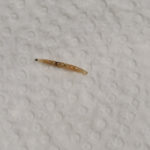Some of the most common types of worms cause symptoms that could potentially be fatal. The most common types of cat worms include ringworm, which live in dead skin, hookworms, tapeworms, roundworms, and whipworms. These types of worms live in the cat’s intestines. Also known as dermatophytosis, ringworm is an infection in the dead layer of the skin, hair, and nails. The fungus uses dead tissue, called keratin, in the skin as a source of nutrition. Hookworms, tapeworms, roundworms, and whipworms live in the cat’s intestines and they can cause:
- Change in appetite
- Diarrhea
- Weight loss
- Weakness
- Vomiting
- Inability to exercise
- Distended abdomen, especially in kittens
- Dull coat
Much like worms in humans, cat worms can be harmful if left untreated. Fortunately, hookworms, tapeworms, roundworms, and whipworms are easily treated through antibiotics, diet changes, and exercise. While these types of worms are rarely fatal if treated early, another type of worm called “heartworm” can cause sudden, serious, and even fatal disease in the cat. Even a small number of heartworms can be serious. Symptoms of heartworm include respiratory stress (difficulty breathing or rapid shallow breathing), gagging or vomiting, lethargy, loss of appetite, and weight loss.
In addition to recognizing cat worm symptoms, it is important to recognize what the different types of cat worms look like. Roundworms look like spaghetti and tapeworm segments look like little grains of rice. In addition to your cat’s food, cat worms can also be found on or buried in your cat’s fur, around his anus, and around his paws (from scratching). It is not uncommon to find cat worms in your cat’s ears as well.
If you’re planning to adopt a cat that has worms or a cat that is currently being treated for worms, there are a few things you should know about cat worms and treatment. First, worms in cats are common and many kittens are born with them. Kittens can be come infected with worms through the mother or after birth through the mother’s milk. Kittens have a weak immune system, so viruses and parasites are easy to catch.
Next, certain cat worms can be contagious to humans. Three of the most common types of contagious cat worms include roundworm, ringworm, and tapeworms. These types of worms are also easily transmitted between cats. Tapeworms are the easiest to transmit only because of where they actually come from. Tapeworms are transmitted to cats though fleas. If your cat has fleas, he can’t transmit an actual tapeworm to his owner, but he can easily transmit the fleas that carry the tapeworm.
Because cat worms are easy to transmit, you should keep the infected cat isolated until he completes treatment and the vet confirms that the cat is worm free. Fortunately, there are ways to prevent cat worms. One of the best ways to prevent a serious cat worm infection is to have your cat screened for worms twice per year. If your cat is considered high-risk for worms, you should have him screened more than twice a year. High-risk cats typically live in condensed urban areas and they usually live in a home with more than one pet. Outdoor cats are especially susceptible to worms.
Caring for a cat with worms should be done only under the care of a vet. Most non-prescription medications just don’t work. Your vet will have access to a number of cutting edge preventatives that are extremely effective against the most aggressive types of parasites such as roundworm, whipworm, hookworm, and heartworm.
It is important to keep in mind that fleas are a source of certain types of tapeworms. When a cat accidentally swallows an infected flea, the tapeworms can hatch in the cat’s intestines. These types of tapeworms can also be transmitted to humans as well. Animal carcasses such as rodents and rabbits may also contain tapeworms, so if you have an outdoor cat, it will be impossible to keep your cat away from them. You may want to rethink allowing your cat to roam around freely outdoors.
It’s also a good idea to keep your cat clean and well groomed. You should also dispose of cat feces immediately. Never leave it in piles in the litter box. Whipworm and roundworm eggs can remain infectious for years, and hookworm larvae can multiply quickly in dirty litter boxes.
Note: Worm medications are available in tablets, syrups, and pastes. You can purchase worm products over the counter, but again, most over the counter medications don’t work and there really is no substitute for a vet’s care. Don’t put your other pets or other members of your household at risk. Take your cat to a vet right away if you suspect that he has worms.
All About Worms is always free, always reader-supported. Your tips via CashApp, Venmo, or Paypal are appreciated! Receipts will come from ISIPP Publishing.














